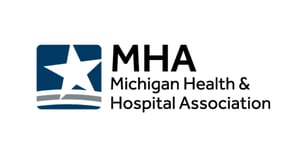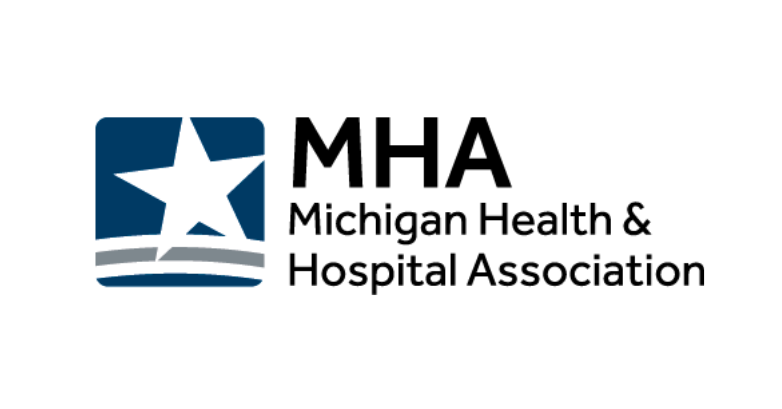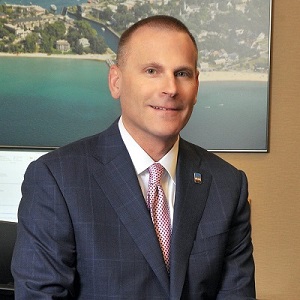
82% of Michigan Voters Oppose Mandated Hospital Nurse Staffing Ratios
LANSING, Mich. — The Michigan Health & Hospital Association (MHA) released data today illustrating strong public opposition to legislation proposing one-size-fits-all state-mandated hospital nurse-to-patient staffing ratios and hospital survey data on the severe impact of the legislation on access to care for Michiganders.
A survey of 600 Michigan voters conducted by EPIC-MRA in August shows 82% of Michigan voters do not believe the government should mandate one-size-fits-all nurse-to-patient staffing ratios in every hospital, which is currently proposed in Senate Bills 334 – 336 and House Bills 4550 – 4552.
If the bills were to become law, 83% of Michigan voters would be concerned about their ability to receive care, or the wait times, in a Michigan hospital emergency room.
 “These survey results are abundantly clear; Michigan voters have no appetite to remove hospital staffing decisions from clinical nursing leaders to implement an arbitrary one-size-fits-all mandate by politicians,” said MHA CEO Brian Peters (left). “Such a decision would be harmful to patients and have dire consequences for healthcare throughout the state. Our hospitals and health systems are focused on proven solutions to address staffing shortages that address the talent pipeline and retain existing nurses.”
“These survey results are abundantly clear; Michigan voters have no appetite to remove hospital staffing decisions from clinical nursing leaders to implement an arbitrary one-size-fits-all mandate by politicians,” said MHA CEO Brian Peters (left). “Such a decision would be harmful to patients and have dire consequences for healthcare throughout the state. Our hospitals and health systems are focused on proven solutions to address staffing shortages that address the talent pipeline and retain existing nurses.”
The MHA also released the results from a survey of 109 Michigan hospitals conducted in July and August on the potential impact of the proposed legislation. Implementing staffing rations will either require hiring 12,954 registered nurses or the state risks closing up to 5,074 hospital beds to comply. These results follow a survey of 95% of the MHA membership in March 2023 which found Michigan hospitals had 8,438 immediate openings for nurses amid a nationwide nursing shortage. The loss in hospital bed capacity is roughly equivalent to Michigan closing its six largest hospitals determined by licensed hospital beds.
“The significant and devasting impacts these bills can have on patient care and patient access make these the top concern for hospitals and health systems throughout our state,” said Shannon Striebich, MHA Board Chair and Ministry President and Senior Vice President of Operations at Trinity Health Michigan. “We value our nurses and are working diligently to offer recruitment and retention options that do not come at the expense of access to care for Michiganders.”
Hospital staffing decisions and nurse-to-patient ratios are currently made by nursing leaders in each individual hospital based on years of clinical experience and a complex set of variables. These decisions weigh a multitude of factors which vary from each hospital and community and can include the number of patients in a hospital unit, how sick each patient is, the training and experience level of nurses and other members of the care delivery team, available technology and existing hospital data and metrics.
“The decades of experience I have serving as a bedside nurse, nursing supervisor, and in other nursing leadership roles inform decisions I make every day when it comes to helping create the best possible environment for our patients and our clinical team,” said Kelli Sadler, MHA, BSN, RN, senior vice president and chief nursing executive of Corewell Health in Southeast Michigan. “We should be able to determine the staffing ratios that best fit our communities. This legislation doesn’t address the real problem, which is a lack of nurses statewide.”
Hospitals remain committed to identifying tangible solutions to recruit more workers to healthcare careers and to retain existing healthcare workers. The actions by the MHA include:
- Launching a statewide public awareness campaign in June 2023 targeting high school students and professionals considering a career change to express the value of healthcare careers.
- Distributing a total of $300 million in state funding to at least 69,000 healthcare workers for the purposes of the recruitment, retention, and training through Public Act 9 of 2022 and Public Act 5 of 2023.
- Successfully advocating for additional nurse training opportunities including funding to incentivize four-year Bachelor of Science in Nursing programs at community colleges and the expansion of Michigan Reconnect to allow funds to support Michiganders in their healthcare career pursuits.
The MHA has also identified several public policy solutions that can be enacted today to help solve nurse staffing shortages. Those solutions include:
- Michigan joining the national Nurse Licensure Compact to reduce barriers for out-of-state nurses to move to and practice in Michigan immediately, which is supported by 67% of Michigan voters according to the August EPIC-MRA survey.
- Increasing eligibility for Michigan Reconnect by lowering the age requirement to 18 and older.
- Expanding Michigan Reconnect availability to include 4-year institutions.
- Increasing penalties for violence committed against healthcare workers.
The data was released as part of Hospitals for Patient Access Advocacy Day, which brought more than 130 hospital and nursing leaders to Lansing to meet with state lawmakers about nurse staffing shortages and access to care for Michiganders. More information can be found on the MHA nurse staffing ratios webpage.
About the MHA
Based in greater Lansing, the MHA advocates in Michigan and Washington, DC, on behalf of healthcare providers and the communities and patients they serve. The MHA is a nationally recognized leader on initiatives that protect and promote quality, cost-effective, and accessible healthcare. To learn more, visit www.mha.org or follow the MHA on Facebook and Twitter.
###
- Download Press Conference Recording















